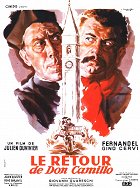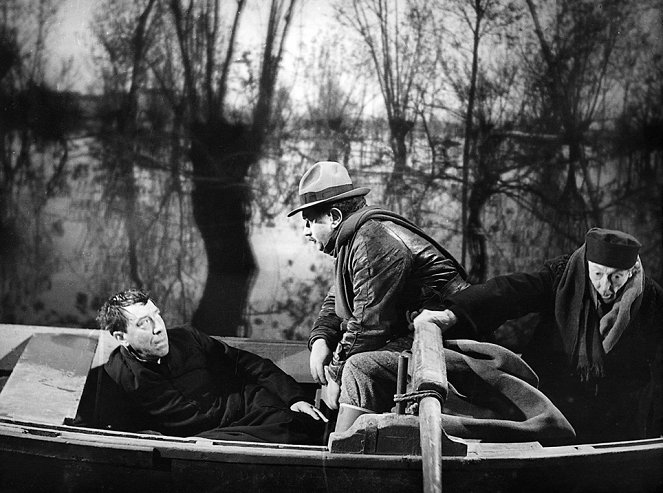Regie:
Julien DuvivierKamera:
Anchise BrizziMusik:
Alessandro CicogniniBesetzung:
Fernandel, Gino Cervi, Paolo Stoppa, Leda Gloria, Enzo Staiola, Édouard Delmont, Ruggero Ruggeri, Alexandre Rignault, Saro Urzì, Jean Debucourt (mehr)Inhalte(1)
Don Camillo ist wegen der handgreiflichen Streitigkeiten mit Bürgermeister Peppone strafversetzt worden. In dem hoch in den Bergen gelegenen Montenara fühlt er sich ganz und gar nicht wohl. Auch unten im Tal läuft nichts mehr wie gewohnt. Bürgermeister Peppone sieht ein, dass in seinem Ort ohne seinen Erzfeind etwas fehlt. Erfolgreich bittet er den Bischof um Einsicht. Kaum ist Don Camillo in sein geliebtes Städtchen Brescello zurückgekehrt, erwacht in beiden wieder die streitbare Kampfeslust um das Wohl der Gemeinde. (ORF)
(mehr)Kritiken (1)
At the turn of the 40s and 50s, Italian cinema was at its peak and Italian neorealism became a concept for both film critics and film enthusiasts. However, the demanding and experimental films of Rossellini and his generational counterparts were not the most visited in Italy, as was the case with the Czech New Wave. Audiences preferred popular comedies, and popular Italian comedian Fernandel managed to score points in this category with a series of films about the freethinking and outspoken priest Don Camillo. He created a phenomenon that has endured in Italy to this day. The scripts of the individual episodes were based on the post-war political situation in Italy, where the Christian Democratic Party and the Communist Party played a leading role, represented in the film by both a rural priest and a communist mayor. The creators depict their mutual quarrels in a generally tolerant manner, despite various twists and escalations. The humor contained in the film is human. In the end, both rivals manage to find a common language in moments when things go wrong for them and the residents of the town. (In the case of The Return of Don Camillo, quite literally.) Overall impression: 75%.
()

